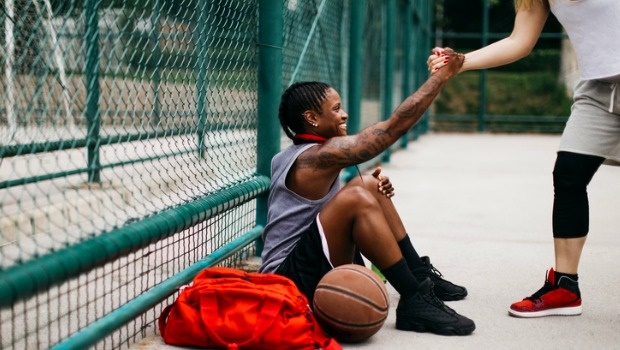
I’m a socially anxious person. I like the idea of interacting with people, but my anxiety often gets in the way and leaves me feeling like an awkward and fumbling mess.
I think it’s obviously much easier when I’m with friends since they know me and all of my quirks, but it’s much harder when I find myself in social or professional situations where I’m meeting someone new.
I constantly second-guess myself and end up berating myself for things that I perceive to be a social faux pas.
I know I’m not the only one.
And while it’s natural to feel guarded or unsure in situations where you meet strangers, it turns out, according to science at least, that perhaps we’re being too hard on ourselves.
Bustle.com reports that a new study reveals that how we present ourselves to others versus how we think of ourselves during the moment we’re interacting with new people means that there’s a disconnect that is known as the liking gap.
In other words, you spend so much time being self-conscious about the interaction that you miss obvious cues that someone else is responding positively to you.
So why are we so hard on ourselves?
Do we lose our ability to be completely natural because it's the best version of ourselves? Are we spending too much time crafting an image of what we think someone else wants to see (especially at job interviews) versus what and who we’re most comfortable being?
It definitely seems to be part of the reason.
The study conducted involved people having conversations within a variety of different settings. The people involved had never met and had to answer a series of getting to know you questions. In each of the sessions it was revealed that the people liked each other more than what they believed.
READ MORE: I met some of my best friends on the internet
Erica Boothby and Gus Cooney, conductors and authors of the study, were surprised to find that this didn’t change regardless of how long the conversation took.
They add in a press release that “the phenomenon is interesting because it stands in contrast with the well-established finding that we generally view ourselves more positively than we do others.”
They add that it also boils down to self-preservation and protection. It’s easier to convince yourself that people don’t like you because having it confirmed would then lessen the blow.
I can relate to this so much, although I recognise that’s a rather unhealthy way to view social interaction.
The authors add that this could hugely impact on the kind of relationships that you form with people, particularly those who really like us. After all, a connection formed based on scepticism of your value in someone else’s eyes might make it harder for you to trust that person.
So perhaps it’s time we start changing our mindsets, leave other people to make up their own minds about us and start believing that we’re showing the best of ourselves when we’re interacting and forming a connection with someone new?




 Publications
Publications
 Partners
Partners














